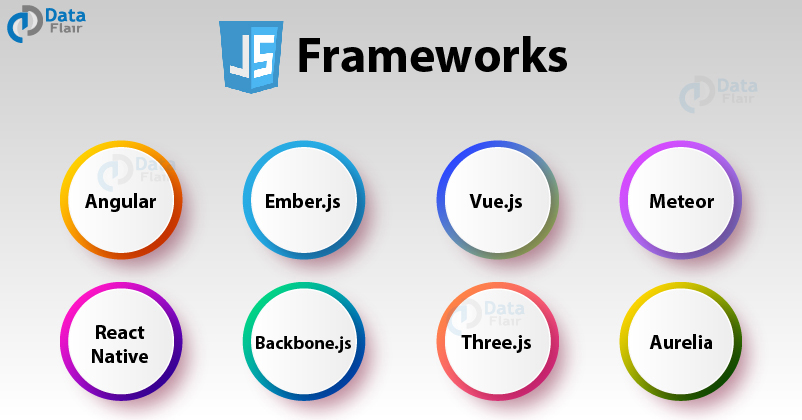Insightful Waves
Exploring the currents of everyday news and insights.
JavaScript Frameworks: A Love Story Between Code and Creativity
Discover how JavaScript frameworks ignite creativity in coding! Unleash your potential and fall in love with your next project today.
The Evolution of JavaScript Frameworks: From jQuery to React
Since its inception in 1995, JavaScript has evolved significantly, leading to the introduction of various frameworks that enhance web development. Initially, developers relied on jQuery to simplify HTML document traversal, event handling, and animation. Its ease of use and compatibility with various browsers made it a go-to tool for many. However, as web applications became more complex, the need for a more structured approach to front-end development became apparent, paving the way for frameworks like Angular and Vue.js.
One of the most transformative developments in the world of JavaScript frameworks is the advent of React, introduced by Facebook in 2013. Unlike its predecessors, React introduced a component-based architecture that allows for building reusable UI components, making it easier to manage and scale applications. This shift towards a declarative programming style not only improved maintainability but also optimized performance through features like virtual DOM. As developers continue to seek better tools for building dynamic user interfaces, the evolution of JavaScript frameworks from jQuery to React has shaped the future of web development, promising even more innovations down the line.

How to Choose the Right JavaScript Framework for Your Project
Choosing the right JavaScript framework for your project can significantly impact your development process and the final product. Start by assessing the scale and type of your application. For instance, if you're developing a small to medium-sized project that requires rapid prototyping, frameworks like React or Vue.js may be suitable due to their component-based architecture and ease of use. On the other hand, for larger and more complex applications, Angular could be a better choice because of its robust structure and integrated tools.
Next, consider the community support and resources available for each framework. A strong community can provide an abundance of tutorials, plugins, and libraries that can streamline your development process. Additionally, think about your team's familiarity with each framework. If your team is already skilled in a particular technology, utilizing that framework can help avoid a steep learning curve and foster better productivity. Ultimately, the choice should align with your project's objectives, timelines, and team capabilities.
Top 5 JavaScript Frameworks That Will Revolutionize Your Coding Experience
As developers continue to seek more efficient and powerful tools, the JavaScript frameworks have taken center stage in revolutionizing the coding experience. Among the plethora of frameworks available, five stand out due to their unique features and widespread adoption. By incorporating these frameworks into your development workflow, you can significantly enhance your productivity and streamline your coding process. Here are the Top 5 JavaScript Frameworks that every developer should consider:
- React: Developed by Facebook, React is a library for building user interfaces. Its component-based architecture allows for reusable code, making it easy to maintain and scale applications.
- Angular: Maintained by Google, Angular is a full-fledged framework that provides a robust structure for building dynamic web applications. With features like two-way data binding and dependency injection, it simplifies complex app development.
- Vue.js: Known for its gentle learning curve, Vue.js offers a flexible and approachable framework for building interactive user interfaces. It can be integrated easily with other projects and libraries.
- Node.js: While primarily known as a runtime environment, Node.js allows developers to use JavaScript for server-side programming, enabling a full-stack development experience.
- Svelte: This innovative framework shifts the work from the browser to the build step, resulting in high-performance applications with smaller bundle sizes.